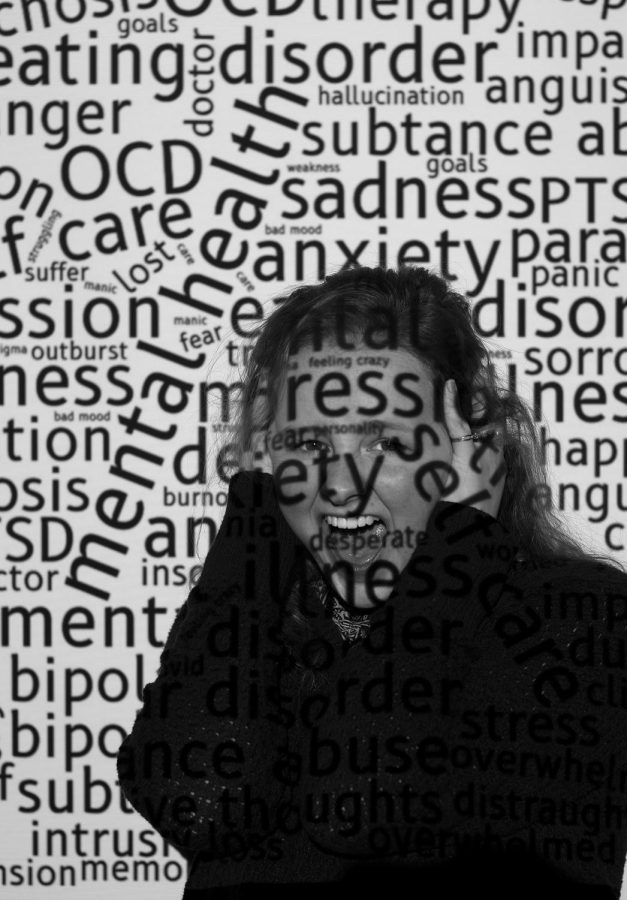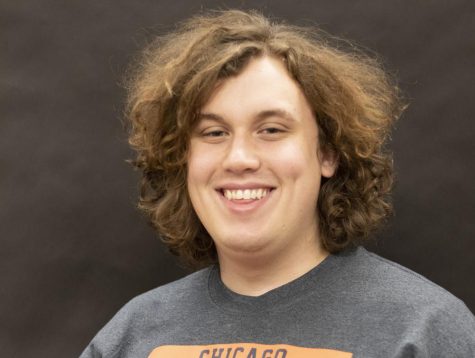Students talk mental health during COVID
April 13, 2022
It’s been a little over two years since Eastern students’ spring break began on March 16, 2020, a spring break that most students wouldn’t return from until the fall 2020 semester due to the COVID-19 pandemic.
The news of a switch to remote learning came in an email from University President David Glassman the next day.
According to a survey by Active Minds called “COVID-19 Impact on College Student Mental Health,” conducted during April of 2020, 80 percent of college students felt that their mental health was negatively impacted by COVID-19, and 63 percent found it difficult to keep in touch with others.
William Meyer, a freshman theatre major, said that one of COVID-19’s longest-lasting effects was the damage it did to connect with others.
“People need people,” Meyer said. “That’s the thing. And COVID really did a lot of damage with the social connectivity with a lot of people and some people thrive on that. And I think that, besides the people that got sick, that’s probably where the most damage was done.”
Feelings of isolation were a recurring theme for many respondents to a survey conducted by the Daily Eastern News.
“Having limited social interaction has impacted my mental health,” one wrote. “I am generally a social and enthusiastic person, but I feel as if my energy I once had is non-existent.”
“Isolation makes me very depressed so depending on the time during the pandemic, that’s been an issue,” wrote another.
“It made school tremendously harder, and I hated taking classes over Zoom,” one responded. “It was harder to make friends and communicate with others face-to-face. It had affected me so bad that I switched my major because I couldn’t stand the environment I was in.”
Kirsten Paape, a junior 2D studio art and psychology major, said that her mental health in her sophomore year suffered from fear of getting others sick and having to move to a dorm in the basement of Pemberton that got little sunlight.
“(My) living condition changed, and then masking and not having the vaccine yet at that point in time was so stressful to me, and so I felt like I couldn’t leave and be safe,” Paape said. “So that kind of combined with my anxiety, and so I really didn’t leave my room or socialize often.”
Meyer said that although he was fine being at home for an extended period of time, people still need to get out every once in a while.
“Personally I’m not someone who goes out a lot,” Meyer said. “I prefer to stay at home kind of so in a way this was a little good for me because I didn’t really have to go out that much. But the thing is, I do sometimes need to go out but now I can’t. A little too much of anything isn’t good for you, a little bit too much of inside is never good for you.”
Paape said that while she did feel burnt out and lacked motivation when classes went online and she went home, she also doesn’t think her time at home in the summer of 2020 was as hard as it might have been for others.
“I feel like other people probably struggled a lot being with their families,” Paape said. “But I wasn’t working that summer, so I kind of just didn’t really have a sense of purpose for that time being. But I wasn’t actively panicking or getting really bad mentally just because I didn’t have anything to trigger my anxiety.”
Meyer said it was difficult getting used to the change in social interactions, like only being able to see friends for a few minutes and from multiple feet away.
“In a way it kind of felt like I was barely functioning in society,” Meyer said. “This isn’t how I’m used to interacting with people, and I think that was the case for a lot of people as well. It’s a great change. Most people don’t acclimate to change very well.”
Clayton Crozier, a graduate student studying psychology, worked on a thesis that explored this resistance to change and observed the correlation between social anxiety and fear of COVID-19, and how they were related through a concept called intolerance of uncertainty.
“That’s basically this idea of having difficulty with ambiguity, newness, basically experiencing psychological distress from being uncertain about what something is going to look like, which is something that everyone has experienced with the pandemic,” Crozier said.
Crozier also listed examples of questions and uncertainty that people may have surrounding COVID-19 .
“How long is it going to last,” Crozier said. “How bad is it going to be if I get the virus? How much longer am I going to have to stay inside and wear masks and do all of these protective measures? It can make a lot of people feel out of control, and that can really lead to that heightened anxiety.”
Crozier said that studies like his are relatively new, and explained that the prediction for fear of COVID-19 and social anxiety being related was because of “this difficulty to cope with uncertainty,” or intolerance of uncertainty.
“This is a very early study that is pointing in the direction that those mental health outcomes could be due to this uncertainty that we’re having about the pandemic that is making it more difficult for us to cope with it and live with it,” Crozier said.
Ryan Meyer can be reached at 581-2812 or at rameyer@eiu.edu.





































































